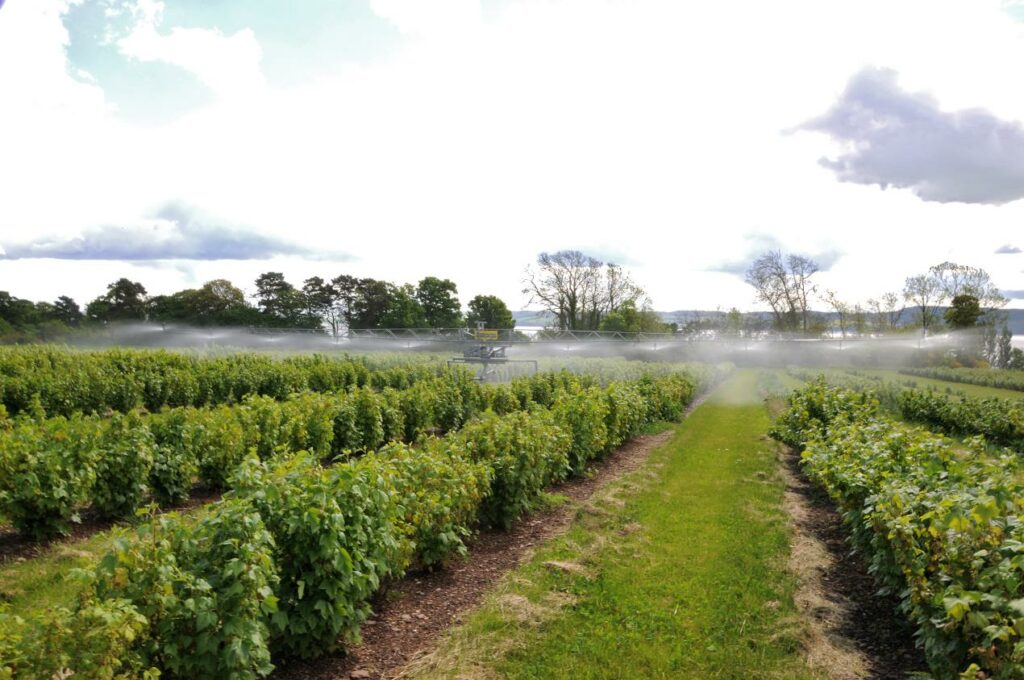Moving towards climate-resilient blackcurrant varieties
20th February 2023
Since blackcurrants need cold winters to thrive, scientists at the James Hutton Institute (JHI) have been working to develop a new variety called Ben Lawers which crops well in warmer winters, helping growers overcome a major sustainability challenge.

Farmers across the UK produce around 10,000 tonnes of blackcurrants for Ribena each year, roughly 90% of Britain’s blackcurrant crop.
The JHI runs a world-leading blackcurrant breeding and research programme and has been working alongside farmers to trial new plant varieties to withstand future climate pressures. The institute has also been conducting research for Ribena – the company purchasing around 90% of Britain’s blackcurrant crop annually – for over 40 years.
The second in a series of ten case studies, featuring as part of this year’s RHASS Presidential Initiative (PI), will look at the role of the JHI in helping farmers develop more resilient and sustainable blackcurrant crops.
Dr Jonathan Snape, head of James Hutton Ltd, has been working with generations of blackcurrant farming families to achieve that goal.
“Farmers across the UK produce around 10,000 tonnes of blackcurrants for Ribena each year. The drink uses a blend of blackcurrant varieties and virtually 100% of the varieties in the blend were bred by us.
“Our Ribena work is one of most enduring commercial and scientific partnerships and one of the largest crop study programmes,” he said.
Andrew Husband, who has been growing blackcurrants at East Adamston Farm for over 30 years, is one of only four suppliers of Ribena in Scotland.
He explained that working closely with scientists at the JHI, looking at new varieties in the context of climate change, pest control and disease resistance, has allowed him to safeguard his business and give confidence to the next generation.
“Without research and investment in science, we would be going backwards as an industry, given the challenges which are presented by climate change,” he said.
“We are all having to prepare for warmer summers and wetter winters and if we don’t advance and look at new ways of breeding plants and varieties which can better withstand these changes, then there won’t be a future for soft fruit in the next 20 years.”
Mr Husband, who was forced to halt raspberry production because of issues around Phytophthora root rot, believes that disease challenges are only going to worsen in the coming years and so science will need to evolve and offer viable solutions as a result.
George Taylor, vice-president of the RHASS PI, explained that blackcurrant growing within the Perth area fits well with this year’s theme, demonstrating the critical role of science within food and drink production.
He commented: “Suntory, a Japanese-owned multinational business has made a substantial investment in blackcurrant breeding with the James Hutton Institute […].
“The Husbands have been growing blackcurrants for over 30 years and they have clearly benefitted from the introduction of new varieties being bred at the Institute that are addressing key issues such as climate change, pest control and disease resistance.”
For more information on this year’s RHASS Presidential Initiative and to access future case studies, please visit: https://rhass.org.uk/presidential-initiative/ .
